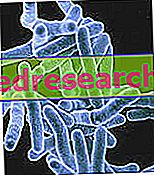KYTRIL ® is a drug based on Granisetron hydrochloride.
THERAPEUTIC GROUP: Antiemetics - Antinausea - antagonists of serotonin.
IndicationsAction mechanismStudies and clinical effectiveness Usage and dosage instructionsWarnings Pregnancy and lactationInteractionsContraindicationsUndesirable effects
Indications KYTRIL ® Granisetron
KYTRIL ® is used both in the preventive and therapeutic phases of acute and delayed episodes of nausea and vomiting induced by chemotherapy, radiotherapy and surgery.
KYTRIL ® Granisetron mechanism of action
KYTRIL ® is a granisetron-based drug, an active ingredient that is taken orally rapidly and totally absorbed by the gastro-intestinal tract, and then distributed 65% bound to plasma proteins.
After a half-life of about 9 hours, valid for both parenteral and oral intake of the active ingredient, granisetron is metabolised to the liver level and subsequently excreted partly through the urine and partly through the faeces.
The antiemetic action of KYTRIL ® is guaranteed by the presence of the active ingredient granisetron which acts as a highly selective antagonist of 5HT3 receptors of serotonin both at the level of the gastrointestinal tract, and at the central level, involved in the genesis of vomiting.
The high specificity of action minimizes the occurrence of side effects, and the antagonizing action against these receptors, allows a particularly effective use in the treatment of nausea associated with chemotherapy or radiotherapy, characterized by an increase in concentrations of serotonin at the peripheral level.
Studies carried out and clinical efficacy
1. GRANISETRON NEW FORMULATIONS
Only recently the FDA has approved the commercialization of a new formulation of granisetron, represented by trans dermal patches. Pharmacokinetic studies have shown that this mode of absorption may overlap for tablet pharmacokinetic characteristics and clinical efficacy, making therapy much easier.
2. GRANISETRON NOT ONLY AN ANTIEMETIC
The usefulness of granisetron in the post-operative period does not seem to be solely associated with antiemetic and preventive capacity, but also with the possibility of significantly reducing the post-anesthetic shiver, thus shortening hospitalization times.
3. ANTIEMETIC ACTION OF THE GRANISETRON
In this study, the antiemetic efficacy of various doses of granisetron was tested in women undergoing breast surgery. The data show that a significant antiemetic effect can be observed already at the doses of 20 micrograms / kg of granisetron, and as higher doses, they are evidently not associated with an improvement in the therapeutic efficacy of the drug. Furthermore, the minimal effective dose seems to lack clinically relevant side effects.
Method of use and dosage
KYTRIL ® coated tablets 1 mg of granisetron; 0.2 / ml oral solution of granisetron; solution for injection for intravenous use of 3mg / ml - 1mg / ml - 3mg / 5ml of granisetron; solution for injection for intramuscular use of 3mg / ml of granisetron:
the recommended dose useful for reducing the emesis associated with chemo or radiotherapy is that of 3mg of granisetron taken in the form of an injectable solution (if intravenously with a slow infusion), before starting cytostatic therapy. In the event that the feeling of nausea and relative vomiting are present, it would be advisable to extend the therapeutic protocol up to the maximum daily dose of 9mg.
As for the tablet formulation, the recommended dose is 1 mg twice a day, or two mg once a day, to be extended up to the seventh day after therapy.
Doses drop significantly when KYTRIL ® is administered with the aim of reducing nausea and vomiting associated with surgery.
In any case, the correct dosage formulation should only be carried out by the doctor, based on the physiological and clinical characteristics of the patient.
Warnings KYTRIL ® Granisetron
Like all antagonists, even selective, of serotonin receptors, granisetron contained in KYTRIL ® is able to reduce the motility of the intestinal segment, potentially aggravating the clinical conditions of patients suffering from occlusions and intestinal obstructions.
Despite the granisetron, it slightly changes the conductivity characteristics of the myocardium, alterations such as the lengthening of the QT interval or the onset of arrhythmias and conduction disturbances, can be significantly increased in patients suffering from cardiovascular diseases.
The various formulations envisaged for KYTRIL ® may contain sorbitol and lactose, thus being dangerous for individuals with fructose intolerance, glucose / galactose malabsorption or lactase enzyme deficiency.
The presence of headache, dizziness and drowsiness following the intake of granisetron, could reduce the patient's normal perceptive capacities, making it dangerous to use machinery and drive vehicles.
PREGNANCY AND BREASTFEEDING
The absence of clinical trials related to the testing of granisetron in pregnant women does not allow us to understand the safety profile of KYTRIL ® when taken during pregnancy.
In this regard it is generally not recommended to take this drug during the entire period of pregnancy and subsequent breastfeeding.
Interactions
Different pharmacokinetic studies have shown that granisetron may well adapt to the concomitant administration of other active ingredients, especially those commonly used during anti-emetic treatments, without significant alterations to the pharmacokinetic and pharmacodynamic properties of the aforementioned drug.
Contraindications KYTRIL ® Granisetron
KYTRIL ® is contraindicated in case of hypersensitivity to one of its components or to pregnancy and breastfeeding.
Undesirable effects - Side effects
The clinical trial has associated the intake of KYTRIL ® also at therapeutic doses, the appearance of alterations of the nervous system, above all headache and drowsiness, general disorders such as asthenia, and disorders of the gastro-intestinal tract such as diarrhea or constipation.
The alterations affecting the cardiovascular system have been decidedly more rare.
Only in some cases pyrexia, increased transaminases and skin eruptions that tend to spontaneous regression once the therapy is suspended have also been observed
Note
KYTRIL ® is a salable drug only under prescription.



